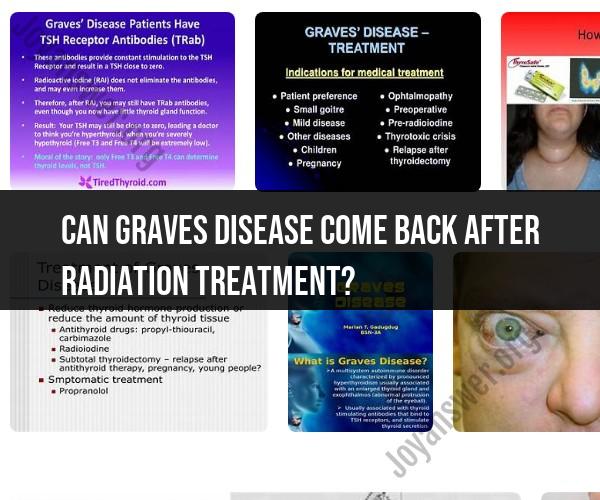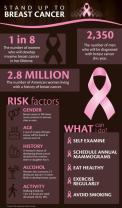Can Graves disease come back after radiation treatment?
Graves' disease, an autoimmune disorder that affects the thyroid gland, can indeed recur after radiation treatment. Radiation therapy for Graves' disease typically involves the use of radioactive iodine (RAI) to reduce the activity of the overactive thyroid gland. While RAI is often effective at controlling the hyperthyroidism associated with Graves' disease, it does not guarantee a permanent cure, and recurrence can occur.
Here are some key considerations regarding the recurrence of Graves' disease after radiation treatment:
Variable Success Rates: The success of RAI treatment in managing Graves' disease can vary among individuals. Some patients experience long-term remission, while others may have a temporary improvement in thyroid function before the disease returns.
Dose and Timing: The success of RAI treatment can depend on factors such as the dose of radioactive iodine administered and the timing of the treatment. Higher doses are more likely to lead to hypothyroidism (underactive thyroid) but may be more effective at achieving remission. The choice of dose is typically based on an individual's specific case.
Individual Factors: The likelihood of Graves' disease recurrence can also be influenced by individual factors, including the severity of the initial hyperthyroidism, the presence of other autoimmune conditions, and genetic predisposition.
Thyroid Function Monitoring: After RAI treatment, individuals should undergo regular thyroid function tests to monitor thyroid hormone levels. This helps in early detection of any recurrence or changes in thyroid function.
Treatment for Recurrence: If Graves' disease does recur after radiation treatment, additional treatment options may be considered. These can include medication (antithyroid drugs), repeat RAI treatment, or, in some cases, surgery to remove the thyroid gland (thyroidectomy).
Long-Term Monitoring: Individuals who have undergone radiation treatment for Graves' disease often require ongoing monitoring and management of their thyroid health throughout their lives. This is to ensure that thyroid function remains stable and to address any potential recurrences promptly.
It's essential for individuals with Graves' disease to work closely with their healthcare providers to develop a personalized treatment plan and to regularly follow up for thyroid function testing and monitoring. Effective management can help control the disease and minimize the risk of recurrence, or it can facilitate timely intervention if recurrence occurs.
The Possibility of Graves' Disease Recurrence After Radiation Treatment
Radioactive iodine (RAI) therapy is a common treatment for Graves' disease. It is generally effective in controlling the overactive thyroid, but there is a risk of recurrence. The risk of recurrence is highest in the first year after RAI therapy, but it can occur at any time.
The risk of recurrence depends on a number of factors, including:
- The initial dose of RAI therapy
- The severity of Graves' disease
- The presence of other autoimmune diseases
- Whether the patient is taking other medications
Managing Graves' Disease: Risks and Considerations Post-Radiation
After RAI therapy, patients will need to be monitored closely for signs of recurrence. This may involve blood tests and thyroid scans. Patients may also need to take thyroid hormone replacement medication to keep their thyroid levels in check.
There are a number of risks associated with RAI therapy, including:
- Hypothyroidism (underactive thyroid)
- Thyroiditis (inflammation of the thyroid)
- Salivary gland inflammation
- Dry mouth
- Eye problems
- Cancer
Long-Term Outcomes and Monitoring for Graves' Disease Survivors
The long-term outcome for Graves' disease patients is generally good. Most patients are able to control their thyroid levels with medication and live normal lives. However, some patients may experience long-term complications, such as hypothyroidism or eye problems.
Graves' disease patients should be monitored regularly for signs of recurrence and complications. This may involve blood tests, thyroid scans, and eye exams.
Here are some additional tips for managing Graves' disease after radiation treatment:
- Take your thyroid hormone replacement medication as prescribed by your doctor.
- Get regular blood tests and thyroid scans to monitor your thyroid levels.
- See your doctor regularly for checkups.
- Be aware of the signs and symptoms of recurrence, such as weight gain, fatigue, and goiter.
- If you experience any of the signs or symptoms of recurrence, contact your doctor immediately.
By following these tips, you can help to manage your Graves' disease after radiation treatment and improve your long-term outcome.












